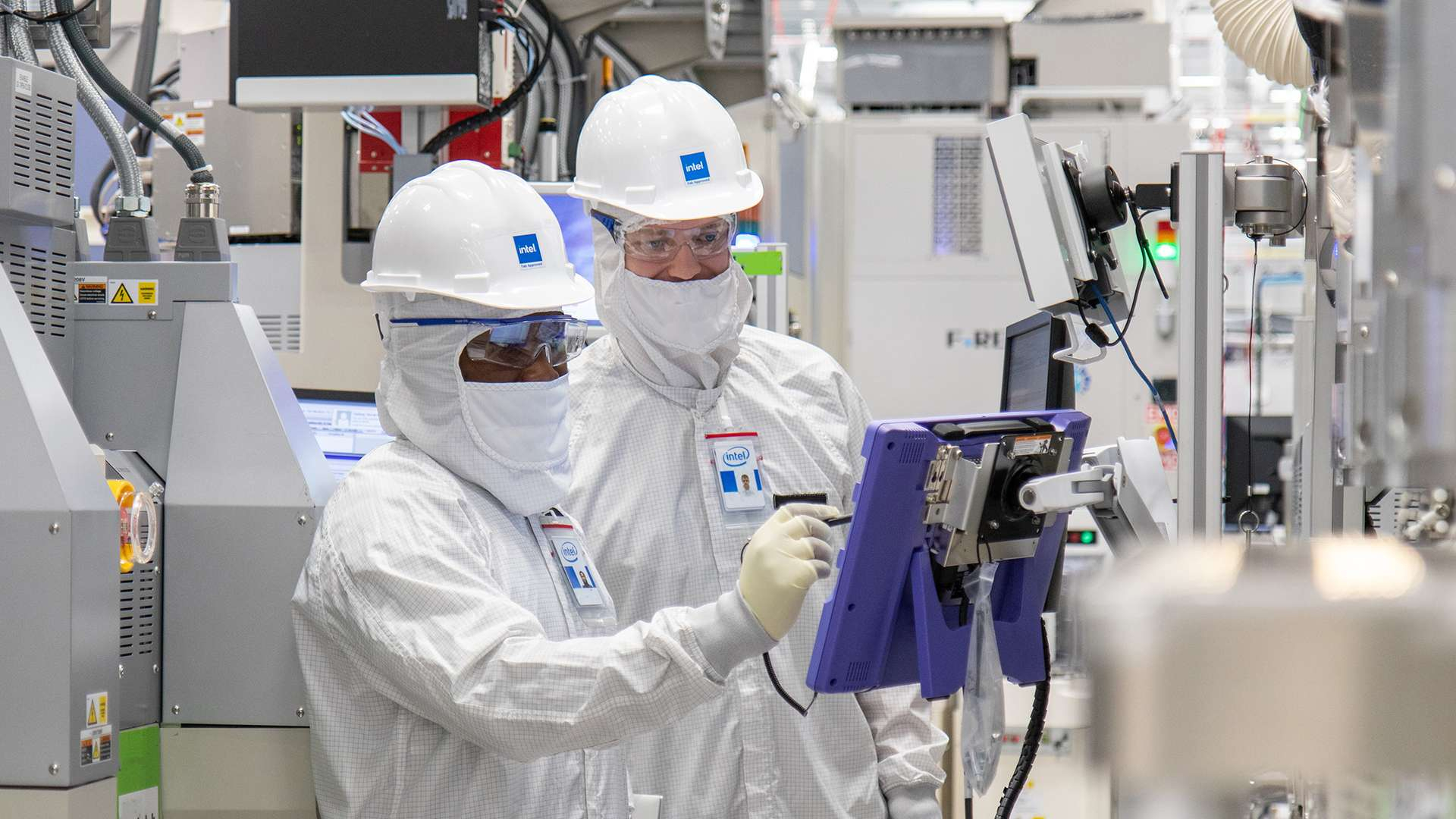At the Canalys Forum EMEA event in Barcelona this week, AMD’s executive vice president for strategic partnerships was asked if Intel’s decision to build new foundries to make chips for other companies was going to be successful. The response was brutal: “Of course not.”
As reported by The Register, the conference involves many of the big vendors, channel partners, and distributors in IT getting together to discuss various topics and news. At the moment, Intel is in the process of constructing multiple new manufacturing plants in North America, Mexico, and Germany.
The extra capacity isn’t just for its own range of chips, though, as Intel has been hawking for fabrication contracts and recently made an agreement with Arm to do just that. This is, of course, an entirely opposite approach to how pretty much every other processor company handles chip making. AMD relies on TSMC for the vast majority of its manufacturing, for example.
So when Darren Grasby, who oversees strategic partnerships at AMD, was asked his thoughts about Intel’s likelihood of success in this endeavour, he didn’t hold back, pointing out the money AMD saved by getting rid of its own foundries was ploughed right back into research and development.
Given how dire its finances were when it spun off the plants into the GlobalFoundaries business, it was a necessary decision, but it’s one that has clearly paid off in the long term. Not only did AMD clear its debts, but the input of cash undoubtedly ensured that the likes of the Zen architecture came to market.
Quality roast aside, Grasby makes a good point. When it comes to the market share of large scale chip manufacturing, TSMC holds a huge percentage. To the point that it even makes chips for Intel, such as the GPUs for the Arc series of graphics cards and the graphics and SoC tiles for the forthcoming Meteor Lake CPUs.
(Image credit: Future)
Best CPU for gaming: The top chips from Intel and AMD.
Best gaming motherboard: The right boards.
Best graphics card: Your perfect pixel-pusher awaits.
Best SSD for gaming: Get into the game ahead of the rest.
But Intel isn’t short on cash and given that it already spends vast sums on R&D, it does make some sense that it would use some of that money to expand its ability to produce high-end chips in large volumes, especially if the US and German governments are going to give them some financial assistance to do so, too.
If it is successful, and Intel can genuinely give TSMC and Samsung a good run for their money in the fab business, then it will undoubtedly be the best decision that Intel’s made in a long time.
If Grasby is right, though, and it is a catastrophic failure, we may end up seeing Intel’s foundries split off into a separate division, just like its FPGA segment was only recently. Wonder what Grasby’s response to that would be? ‘Told ya!’










